This article was co-authored by Adrian Klaphaak, CPCC and by wikiHow staff writer, Ali Garbacz. Adrian Klaphaak is a career coach and founder of A Path That Fits, a mindfulness-based boutique career and life coaching company in the San Francisco Bay Area. He is also is an accredited Co-Active Professional Coach (CPCC). Klaphaak has used his training with the Coaches Training Institute, Hakomi Somatic Psychology and Internal Family Systems Therapy (IFS) to help thousands of people build successful careers and live more purposeful lives.
There are 7 references cited in this article, which can be found at the bottom of the page.
So you’ve been asked to come in for another round of interviews. Congratulations! This likely means that your future employer is seriously considering you for the job and wants to know more about you. This is another chance to showcase your skills and qualifications. So what should you expect to happen, and how can you prepare? We’re here to walk you through a standard second interview so you feel well prepared for what’s to come.
Things You Should Know
- The goal of a second interview is for the interviewer to see if you will be a good fit for the company in terms of both skill and personality.
- Expect to meet with more members of the company, which might include the company president, the head of your department, and the HR manager.
- Prepare to elaborate more on both your soft skills and technical skills through answering more behavioral and situational questions.
- Review difficult questions and mistakes you might have made during the first round of interviews and refine them for the next interview.
Steps
What’s the purpose of a second interview?
-
The goal of the second interview is to learn if you’ll be a good fit for the company. The first interview was more of a general introduction. There, the interviewer got to know the basics of your background and aspirations when it comes to working for their company. The second interview will delve much deeper into your unique characteristics, strengths, and skills. The goal of this interview is to not only find out if you’ll be a good fit for the job, but also if you’ll fit in with the workplace’s culture and the team.[1] X Research source
Second Interview Structure
-
1It might be a series of interviews instead of just a single interview. You might be asked to do a one-on-one interview as well as a group interview with other candidates, so this second interview may be longer than the first round.[2] X Research source
-
2You’ll possibly meet and interview with a more diverse group of people. You’ll be introduced to a lot more people during the second interview than the first. This could include other members working in the department you’re applying for, high-ranking members in the company, other employees, and members of the HR department.[3] X Research source
Typical Second Interview Questions
-
1You might be asked repeat questions from the first interview. Being asked to walk the interviewer through your resume or having to answer why you want the job are fairly standard questions that you can expect on most interviews, regardless of whether it’s the first or last interview. Keep your answers consistent, but don’t repeat your answer from the first interview word for word. The interviewer just wants to establish they have a basic understanding of your qualifications, character, and goals before moving on to more specific questions.[4] X Research source
-
2The interviewer may ask behavioral questions to assess your soft skills. These are questions that employers use to evaluate your skills—often soft skills such as communication, critical thinking, and leadership—when faced with a certain situation. Your ability to answer these behavioral questions will allow your interviewer to better evaluate your character and skills. Use the STAR method, which requires you to explain the Situation or Task you faced, the Action you took to resolve it, and the Results that came from your actions. Some examples of behavioral questions that might come up include:[5] X Research source
- Tell me about a time you failed to meet a deadline. What were the repercussions? What did you learn?
- Give an example of a time you had to give feedback to someone.
- Describe a time you influenced the outcome of a project by taking on a leadership role.
-
3You might get questions about very specific technical skills. These can be questions about your education, past experiences, writing skills, computer skills, or questions about very specific skills related to your position. Ask for clarification if you don’t understand the question before moving to explain specific examples. If they’re asking for a solution to a problem, stick with a simple solution that you know you can explain confidently. Your interviewer might also be trying to evaluate your ability to identify problem areas, so don’t be afraid to ask questions about and point out any improvements you think could be made. Some example questions include:[6] X Research source
- What other companies in this industry do you admire? Why?
- Tell me about a time you had to use your written communication skills to get across an important point.
- What technical certifications do you have?
- What is the role of continuous integration systems in the automated-build process?
-
4They might ask situational questions specific to the work environment. A huge part of a second interview is finding out whether you’ll be a good fit for the company’s work culture. So your interviewer might want to know how you are not just as an employee, but as a co-worker and team member. They’ll want to know if your values and goals align with the company’s. Prepare by thinking about what your ideal work environment would be, and also think about what you can bring to the company’s culture. Some example questions are:[7] X Trustworthy Source Harvard Business Review Online and print journal covering topics related to business management practices Go to source
- What type of culture do you thrive in?
- How would you describe our culture based on what you’ve seen? Is this something that works for you?
- What values are you drawn to and what’s your ideal workplace?
-
5You might be asked about your ideal salary and benefits. Don’t be surprised if the interviewer brings up the matter of salary. Before you go, have an idea of what your preferred salary range is as well as what kinds of benefits you’re expecting. Research average salaries in the industry for similar positions so you don’t give a number that’s way too high or too low. Come with any questions and be prepared to negotiate. The interviewer will usually ask a question like the following:[8] X Research source
- What are your salary expectations?
- We usually pay new employees starting at $x per hour, but what is an ideal salary for you?
- What do you know about our company and current benefits programs?
Preparing for the Second Interview
-
1Go over notes and questions you found difficult from the first interview. Even though you passed onto the second round, you might have found some parts more difficult than others during the first round of interviews. If you have notes from the first interview, review them and focus on the questions you found more difficult to answer. Review the prep you did for the first interview, since similar questions might come up during the second round. Finally, work on things like maintaining eye contact and speaking clearly and slowly if you remember having trouble with that the first time.[9] X Research source
- Practice your answer to the question “Tell me about yourself,” since this is a question that’s likely to come up in most interviews.
-
2Ask for an itinerary for the second interview. It’s important that you know how the day of your interview is going and who you’ll be meeting with. Contact the recruiter or interviewer to see if an itinerary is available if you weren’t already given one. Look into biographical information about the interviewers you’ll be meeting with to help in brainstorming what kinds of questions you think they’ll ask and what qualities and skills they’ll specifically be looking for.[10] X Research source
- For example, if you’re interviewing with the head of HR, it’s likely that they’ll ask you about your experience working with others and resolving conflicts. If you’re meeting with the supervisor of your specific department, they might ask more questions about your technical skills and ability to execute tasks efficiently.
-
3Research the company as well as current events in the industry. Visiting the company’s website, following current industry news, and researching projects the company is involved in or working on are some basic steps you should be taking to prepare to show you know the company well. Talk to current and former employees as well to get insider information about the company’s work as well as the employee culture.[11] X Research source
-
4Prepare questions to ask the interviewer. Questions show that you’re genuinely interested in the position and eager to learn as much as you can about the job. Bring any questions you weren’t able to ask during the first interview as well as specific questions you may have about the role. This might be your last chance to ask these questions (unless there’s another round of interviews), so come prepared. Here are a few examples:[12] X Research source
- Who will be directly overseeing the work I’m doing?
- What kind of support for professional development is in place?
- How have current economic conditions affected this company?
- What will I be expected to accomplish within the first 6 months if I’m hired?
- What kinds of opportunities are there for advancement within the company?
Interview Day
-
1Get plenty of sleep and arrive at least 10-15 minutes early to the interview. Just like during your first interview, finish up your preparations and get your full 8 hours of sleep before the interview day so you’re well-rested and energized. Arrive to the interview site at least 10 minutes early, 15 minutes if you want more of a cushion to make sure you’re not late.[13] X Research source
-
2Get interviewers’ business cards and take note of who’s at the interview. The company president, department heads, high-ranking employees, and your supervisor are all people you’ll want to form strong connections with. If they don’t give you a business card, take notes during your interview and jot down their name and position at the very least. Asking for their contact information is also recommended so you know where to send a thank you note after the interview.[14] X Research source
-
3Ask about next steps in the hiring process. Ask for a general timeline regarding when they think they’ll have a decision and who will be contacting you. This may also not be the final interview in the hiring process, so ask about what the timeline for future interviews will look like and a general description of what you can expect from those. Make sure you have all of the necessary contact information in case you have any questions that come up later.[15] X Research source
-
4Send a thank you note to the interviewers. Thank your interviewer(s) for their time by sending them a thank you email no more than 24 hours after your interview has finished. If you interviewed with multiple people, send an individualized letter to each person.
You Might Also Like
 How to Answer the Interview Question: "How Do You Build Relationships?"
How to Answer the Interview Question: "How Do You Build Relationships?"

-Step-5-Version-4.webp)


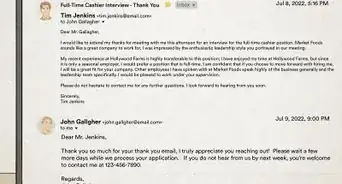 How to Know if an Interview Went Well
How to Know if an Interview Went Well
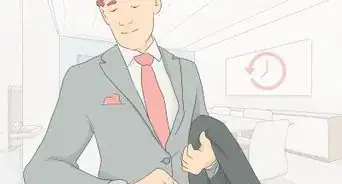



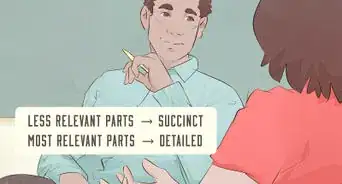

-Step-3-Version-2.webp)

References
- ↑ https://career.fsu.edu/sites/g/files/imported/storage/original/application/09b5db0ff69708b087587d5e1eb5fb14.pdf
- ↑ https://www.hbs.edu/employment/hiring-process/
- ↑ https://www.hbs.edu/employment/hiring-process/
- ↑ https://www.southeastern.edu/admin/career_srv/student_alumni/ace_the_interview/interview_followup/second_interview/index.html
- ↑ https://successworks.wisc.edu/the-basics/preparing-for-your-interview-2/the-star-method/
- ↑ https://www.opm.gov/policy-data-oversight/assessment-and-selection/structured-interviews/
- ↑ https://hbr.org/2015/07/recruiting-for-cultural-fit
- ↑ https://www.southeastern.edu/admin/career_srv/student_alumni/ace_the_interview/interview_followup/second_interview/index.html
- ↑ https://www.southeastern.edu/admin/career_srv/student_alumni/ace_the_interview/interview_followup/second_interview/index.html
- ↑ https://career.fsu.edu/sites/g/files/imported/storage/original/application/09b5db0ff69708b087587d5e1eb5fb14.pdf
- ↑ https://www.careereducation.columbia.edu/resources/you-got-second-interview-now-what
- ↑ https://career.fsu.edu/sites/g/files/imported/storage/original/application/09b5db0ff69708b087587d5e1eb5fb14.pdf
- ↑ https://career.fsu.edu/sites/g/files/imported/storage/original/application/09b5db0ff69708b087587d5e1eb5fb14.pdf
- ↑ https://career.fsu.edu/sites/g/files/imported/storage/original/application/09b5db0ff69708b087587d5e1eb5fb14.pdf
- ↑ https://www.careereducation.columbia.edu/resources/you-got-second-interview-now-what
About This Article

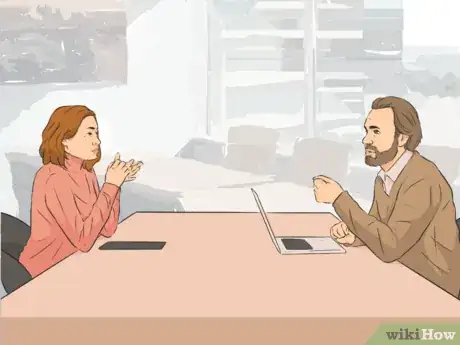

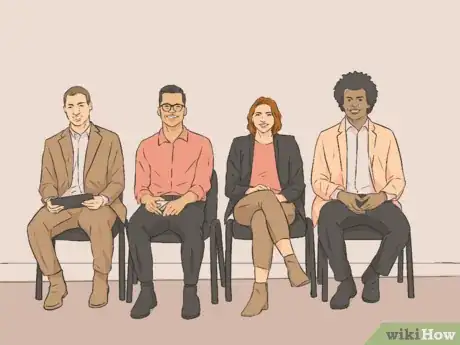


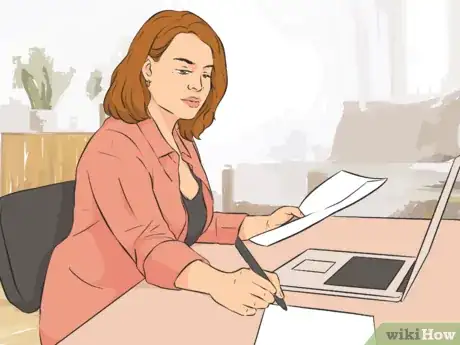


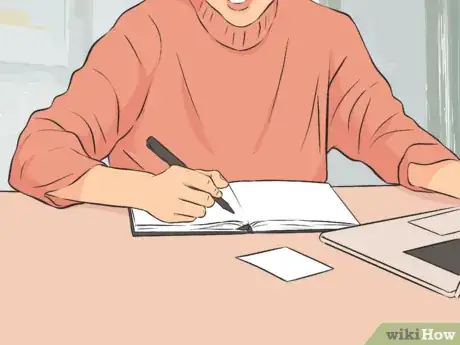


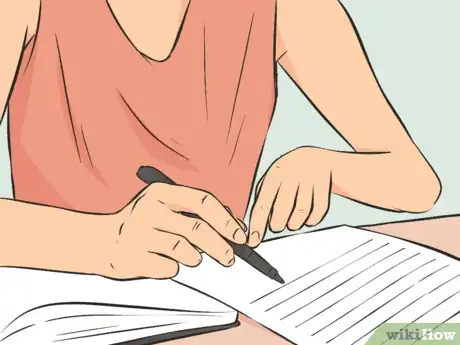

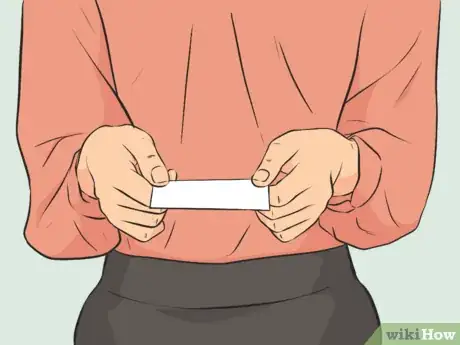
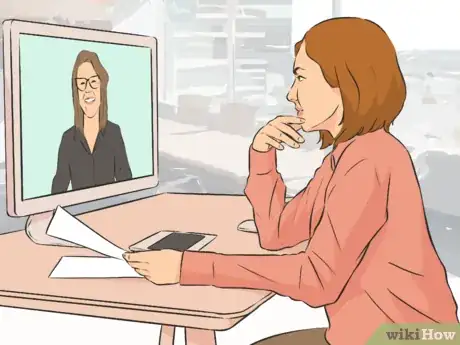
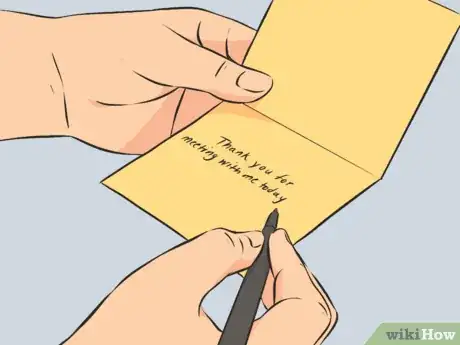







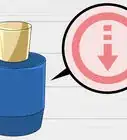
-Step-5-Version-4.webp)



































